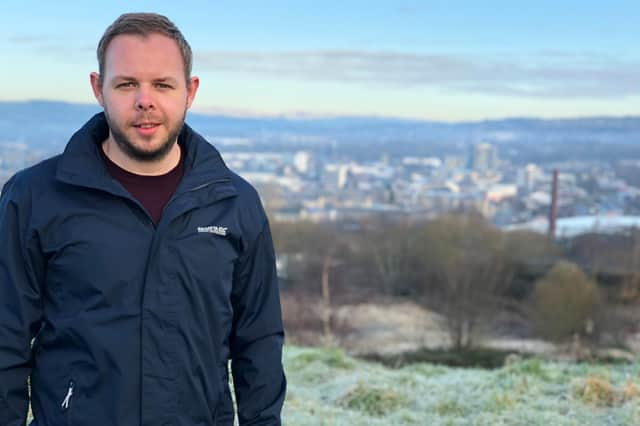Plan B most sensible thing to do | Burnley MP Antony Higginbotham column


That did not mean, as the opposition benches in Parliament were calling for at the time, introducing further lockdowns, but rather to take proportionate steps to curb a variant that was spreading much quicker than what we had previously seen.
That’s what led to the introduction of Plan B, which over the past month has seen small changes made to limit the spread of Omicron in Burnley and Padiham, and across the country. These changes, whilst not wished for by any of us, have allowed us to move away from the idea that we can, at will, restrict people’s liberties and introduce lockdowns based on incomplete data. They have allowed us to find the least intrusive options to buy time whilst data emerges. And it’s been a balanced approach, as calls to shut down our country once again had to be resisted. So while countries across Europe – and parts of the UK – have turned to more draconian rules to limit the spread, completely closing hospitality businesses and in some cases imposing curfews on sections of the population, here in England we have kept the economy open and allowed people to continue living their lives.
Advertisement
Hide AdAdvertisement
Hide AdHaving now had time to analyse all of the data, the scientific evidence has vindicated that decision. Cases have exponentially rose, with many of us having either caught the disease or knowing somebody who has, but hospitalisations and deaths as a result have not followed in tandem.
As the World Health Organisation said only this week, the UK can now start to see “light at the end of the tunnel”. And that is without strict lockdowns. That the UK is likely to be the first major economy to move from pandemic to endemic is testament to proportionate decision making and the hard work of everybody involved; both in taking the extra steps required by Plan B, and ultimately coming forward for their booster jab which has given us protection against the worst of Covid. Some will try to argue with this, but the facts speak for themselves.
And with all of this in mind, on Wednesday I listened to the Prime Minister’s statement where he announced that Plan B restrictions would be lifted. I felt a sense of relief that we are moving away from the cycle of lockdowns and restrictions that we have endured over the past two years.
It is now vital that we move the debate on, towards living with covid. From the 26th of January it will no longer be necessary for people to work from home. Face masks will no longer be mandatory in public places or, as from yesterday, in the classrooms where I know it has caused problems for schoolchildren here in Burnley and Padiham. And crucially Covid passes – where people had to take a rapid test to enter crowded venues – will cease to be required.
Advertisement
Hide AdAdvertisement
Hide AdAll this is a positive step for our borough and is possible because of the determination of us all to take extra steps over the past few weeks to look out for one another. And to the staff and volunteers who have worked around the clock at numerous sites within Burnley, vaccinating residents, I want to say a particular thank you. Their efforts have meant we are in a much better position.
But Covid hasn’t been the only issue to dominate parliamentary news or time. Major legislation continues to be debated and voted on, and the rumour mills continue at pace, fed by journalists looking for a scoop.
On legislation, I was pleased to vote for the Elections Bill, requiring ID to be presented at polling stations as has been the case in Northern Ireland for many years. Whilst not supported by Labour Party or Liberal Democrats, this will drive down fraud and scupper attempts by those who seek to undermine our democracy. Of course this isn’t the only attempt to influence our democratic process with the last week bringing to light donations made by a Chinese official to opposition MPs. This will need addressing too and the Home Secretary has announced her intention to bring forward new legislation reforming the laws around espionage and foreign interference.
The landmark legislation on policing and crime has also been working its way through the House of Lords and I was disappointed to see peers side with groups like Insulate Britain and remove Government clauses to protect our road network and critical infrastructure. The House of Commons will now have to decide how best to respond to this but I remain clear that blocking ambulances, or printing presses, is not acceptable nor peaceful protest. It costs lives and it costs our democracy.